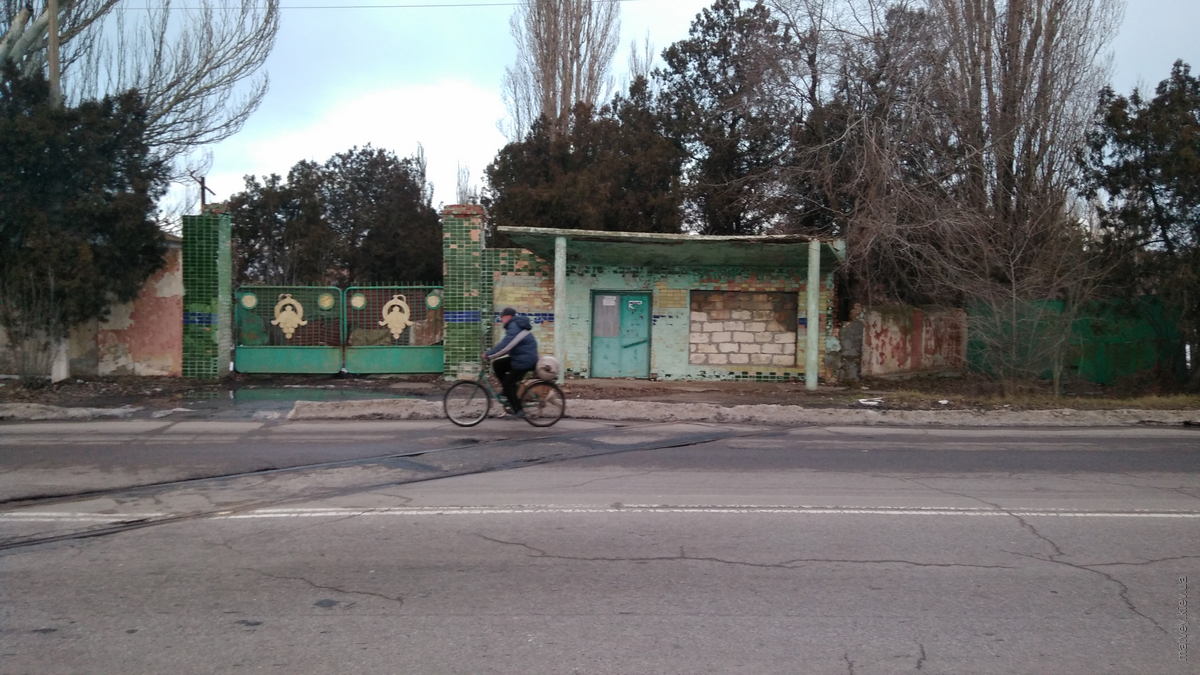The train station.
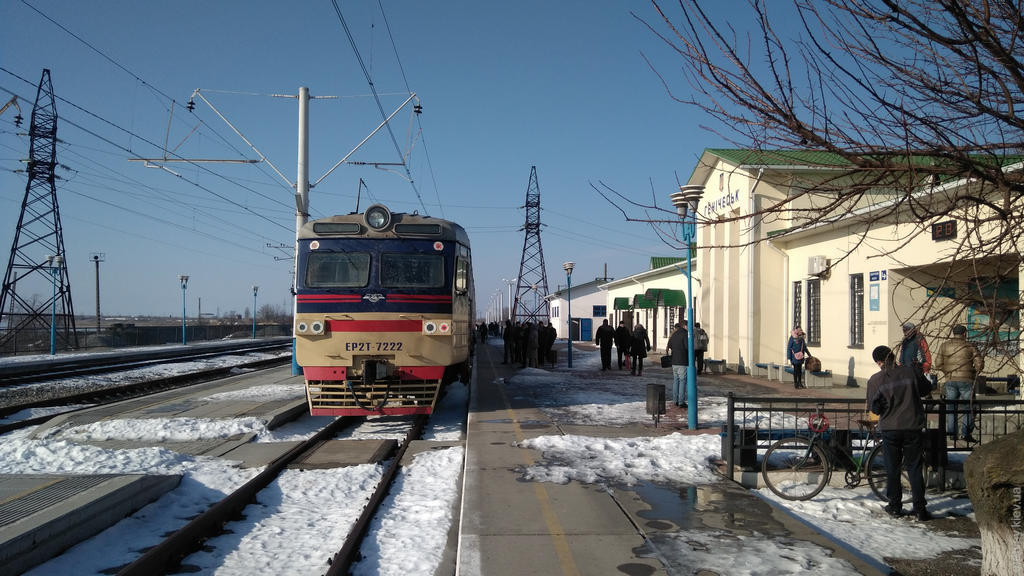
The train station.

Syvash lake as seen from the train station.
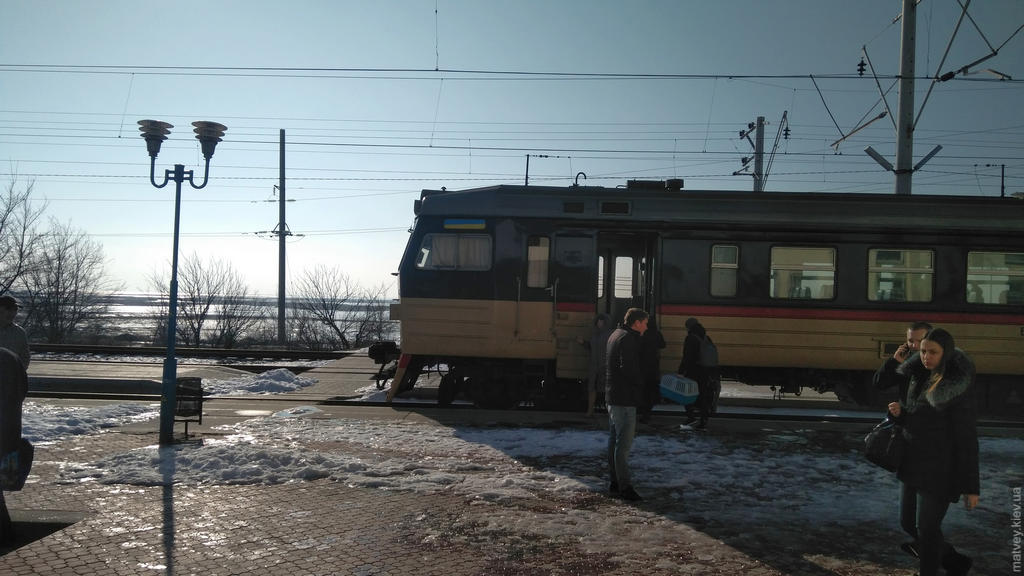
The railway ended soon.
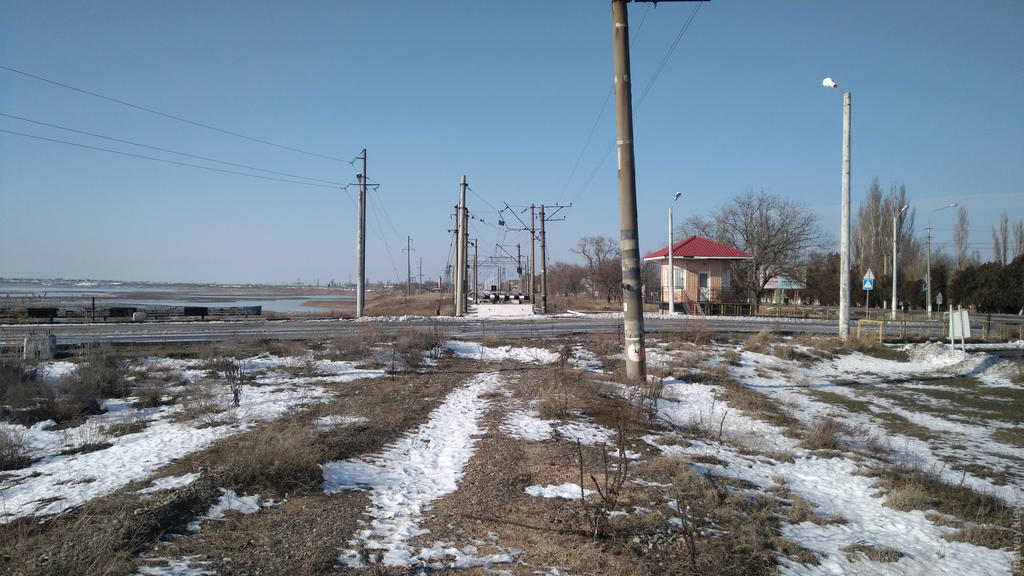
We were walking over the old railroad embankment. The railway has been shortened in some recent times. Before that, it had continued much further, and the train station was closer to the town center.
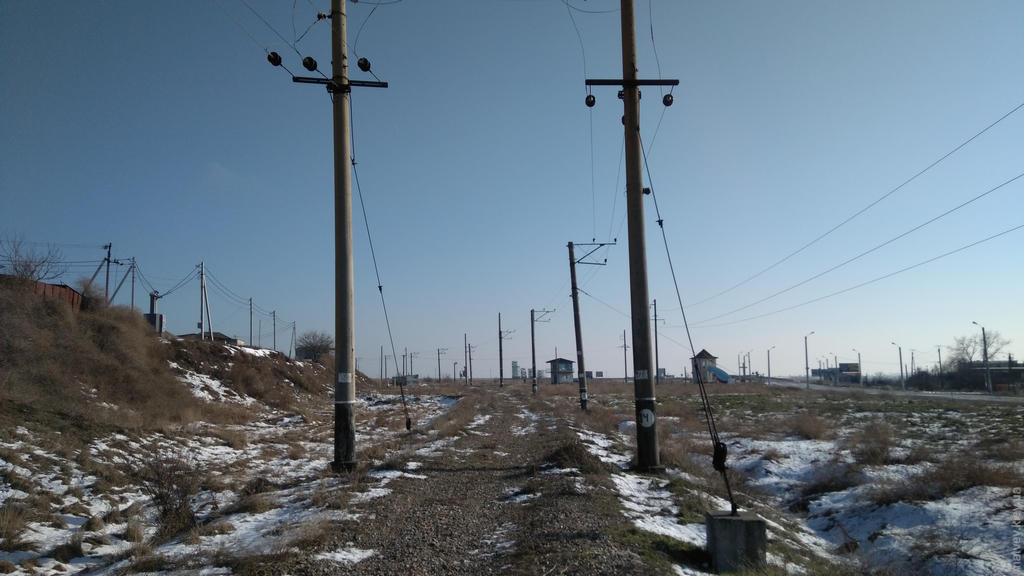
Here is the older train station, obviously disused:
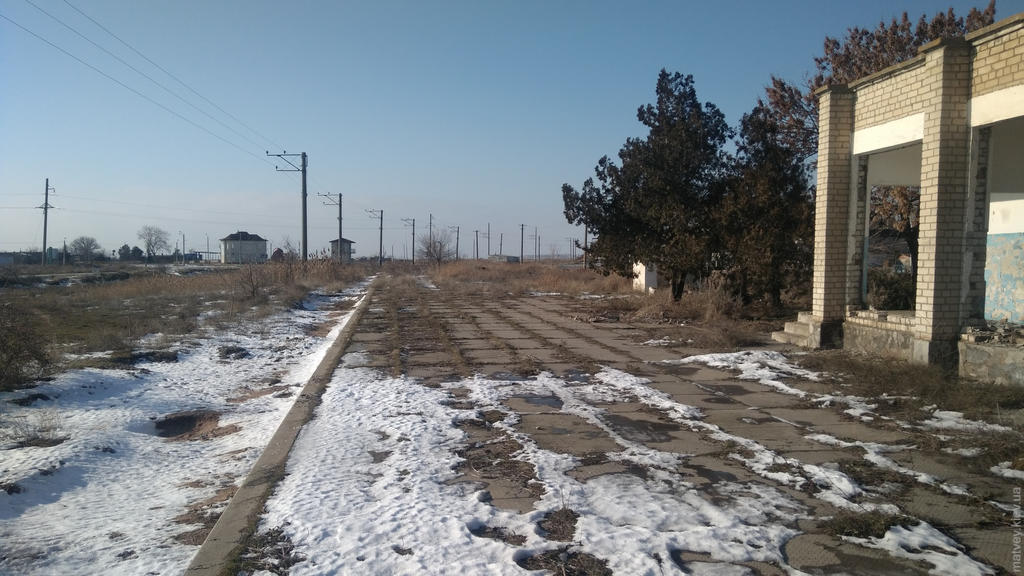
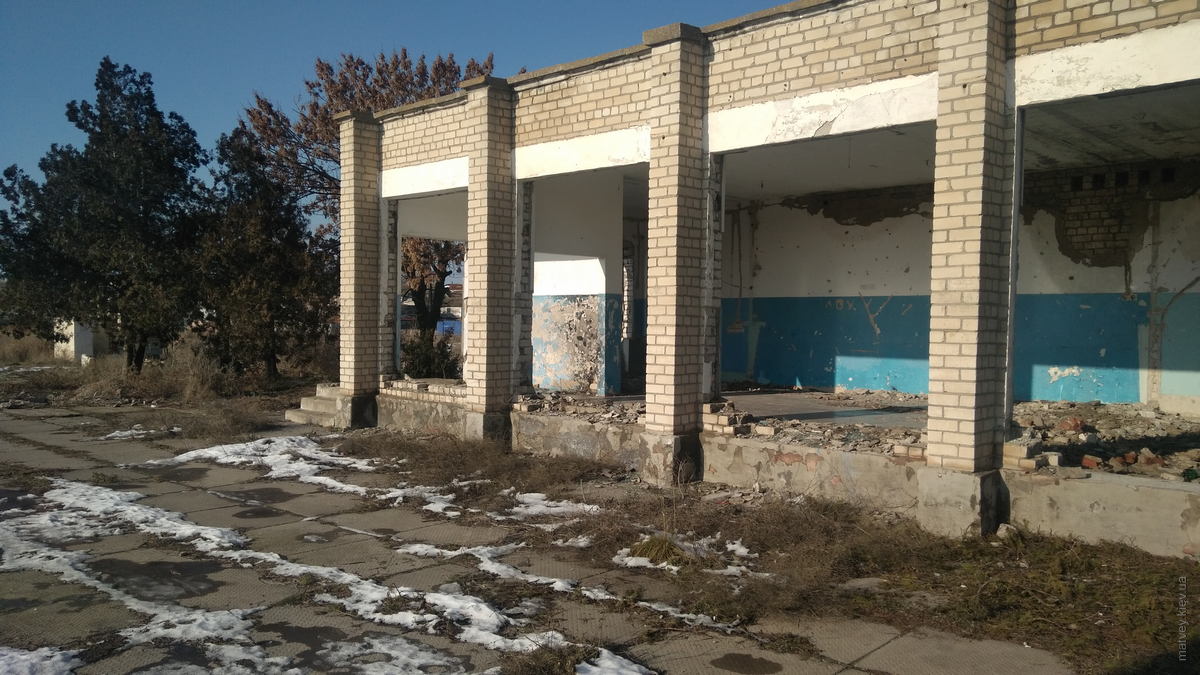
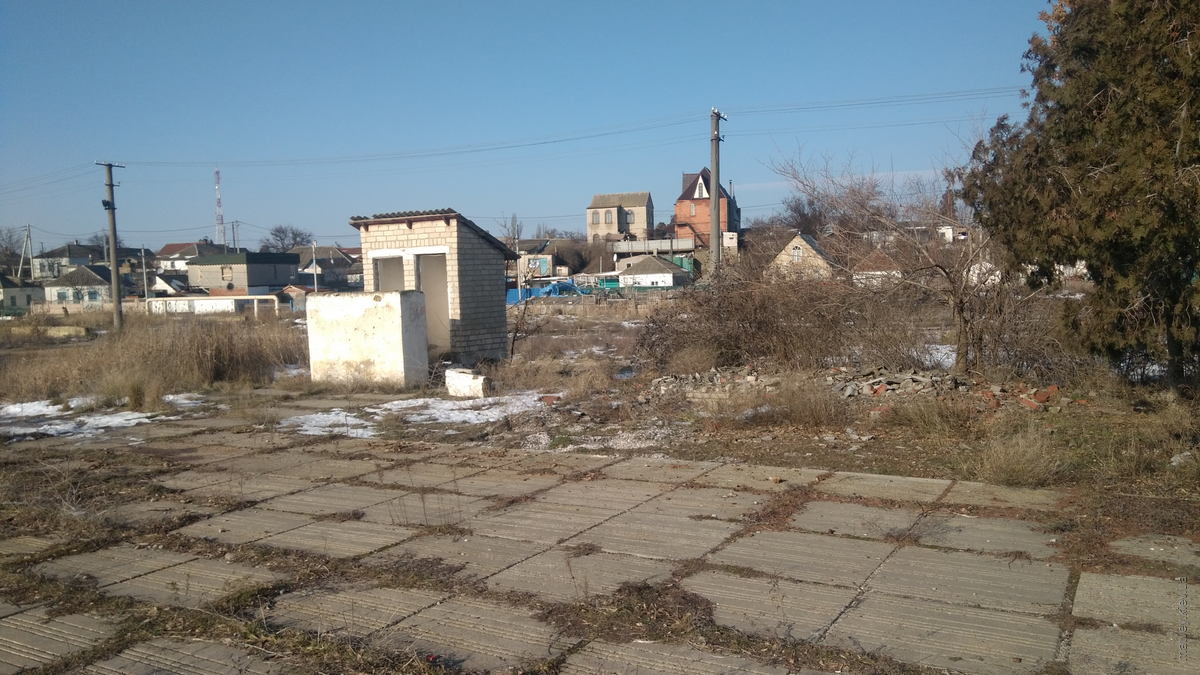
There were times when the railroad continued even further past Henichesk — to the Arabat spit, via this wartime bridge. This metal bridge was taken from the Germans after the Second World War. There were no rails on it at the time of my visit. The surface was tarmac with very bad potholes. It was possible to slowly traverse the bridge in a car — a feat performed twice while we were here. The bridge was wide enough for one car only. Fishermen were using the bridge.
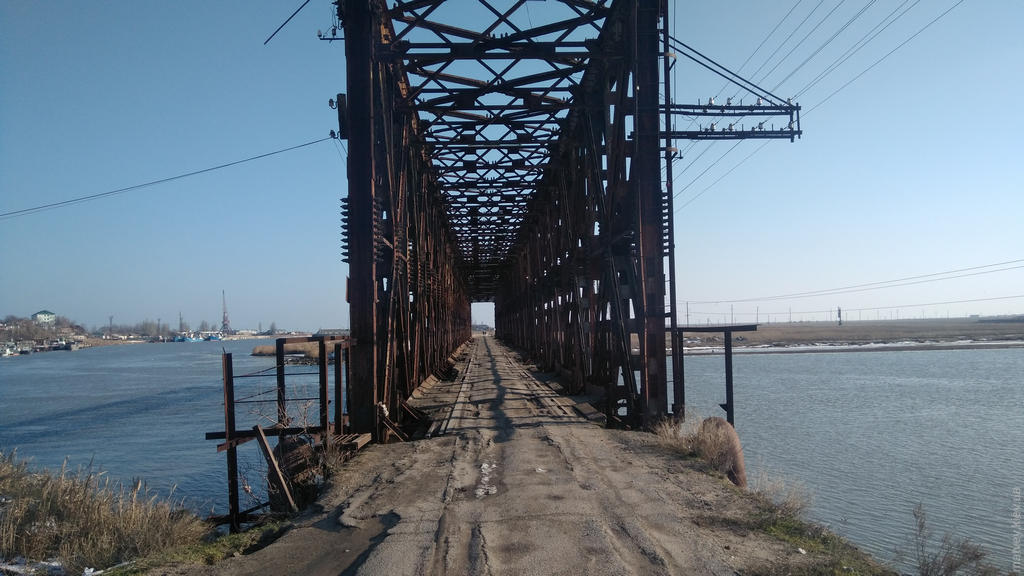
A fisherman told us a story, which could be true as well as false. He said that the germans want this bridge back as a souvenir, and had offered to replace it with a newer one at their cost. But they failed to reach any agreement with the members of our (Ukrainian) parliament due to MPs wanting more money.
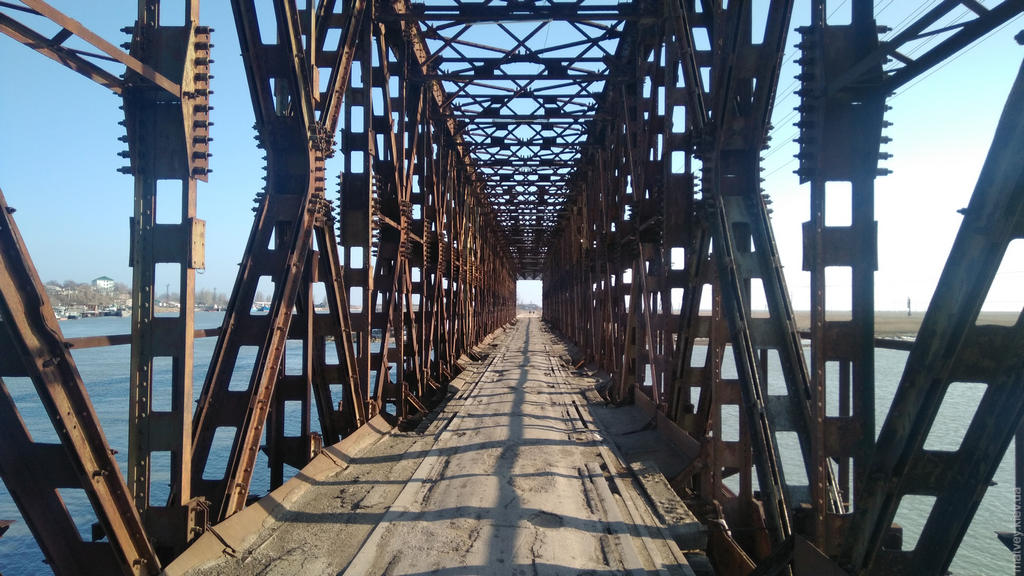
Stairs to the seaport. Their upper end, to be precise.
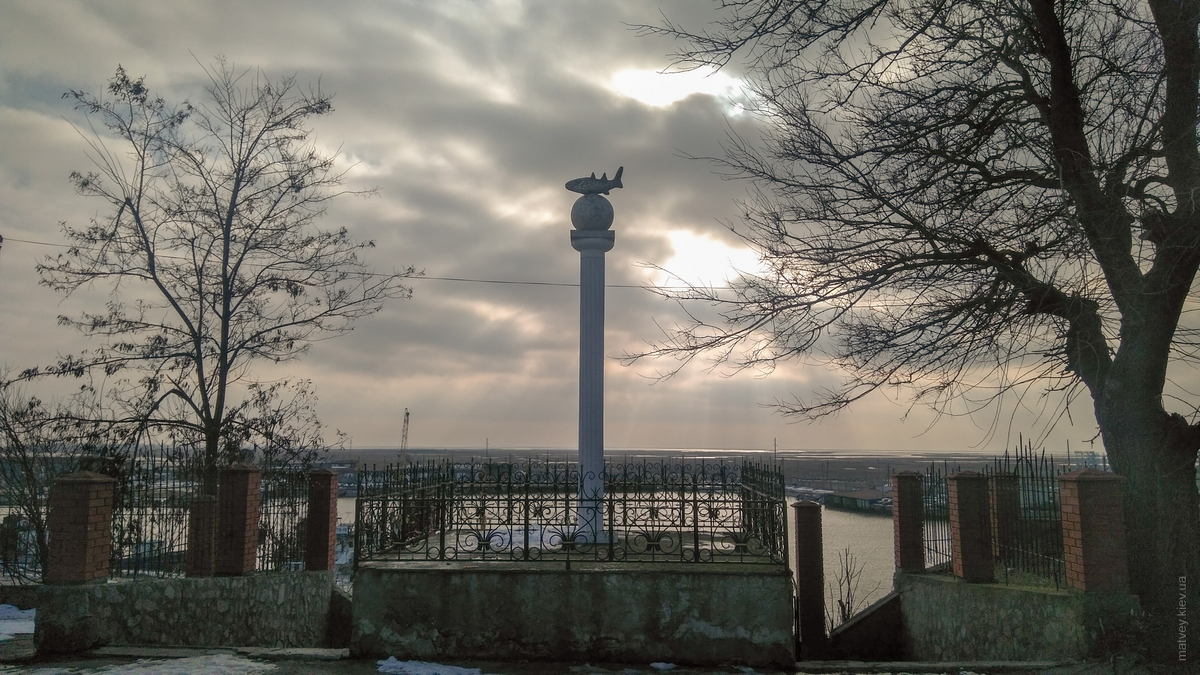
This is what could be seen from a small observation deck at the upper end of the stariway.
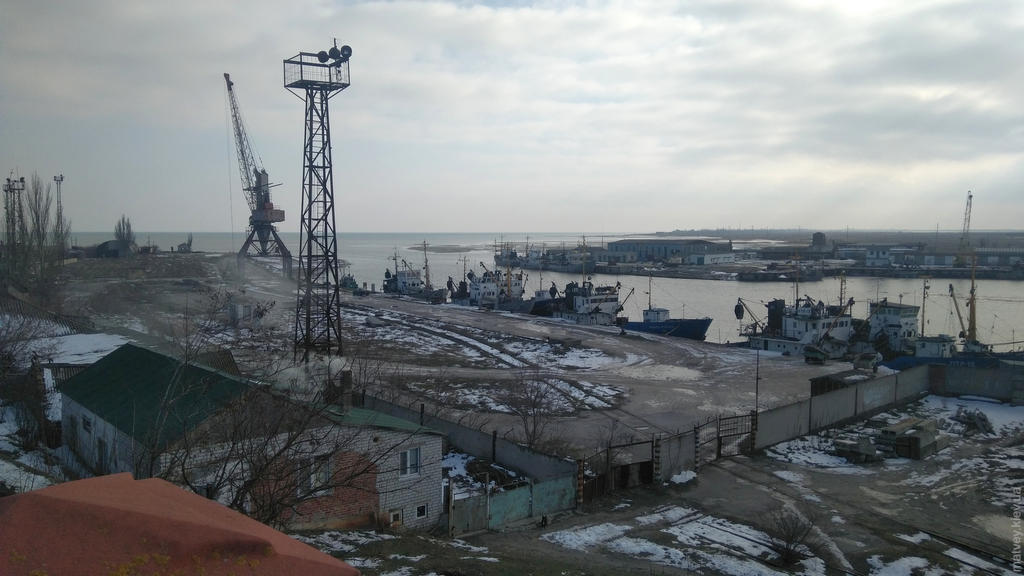
A mildly interesting thing: the roads were powdered with seashells for grip, in an example of using local produce for local needs.
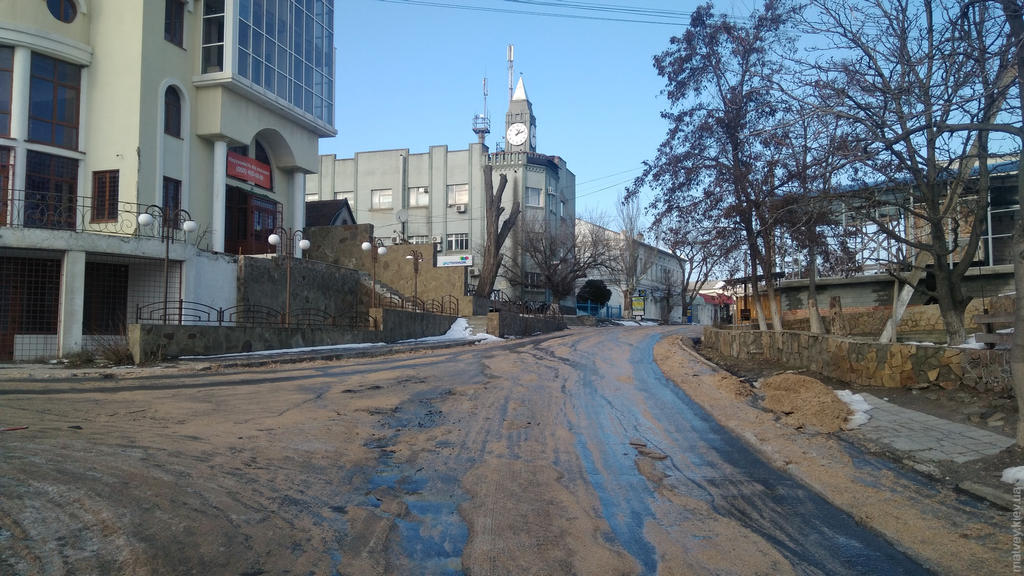
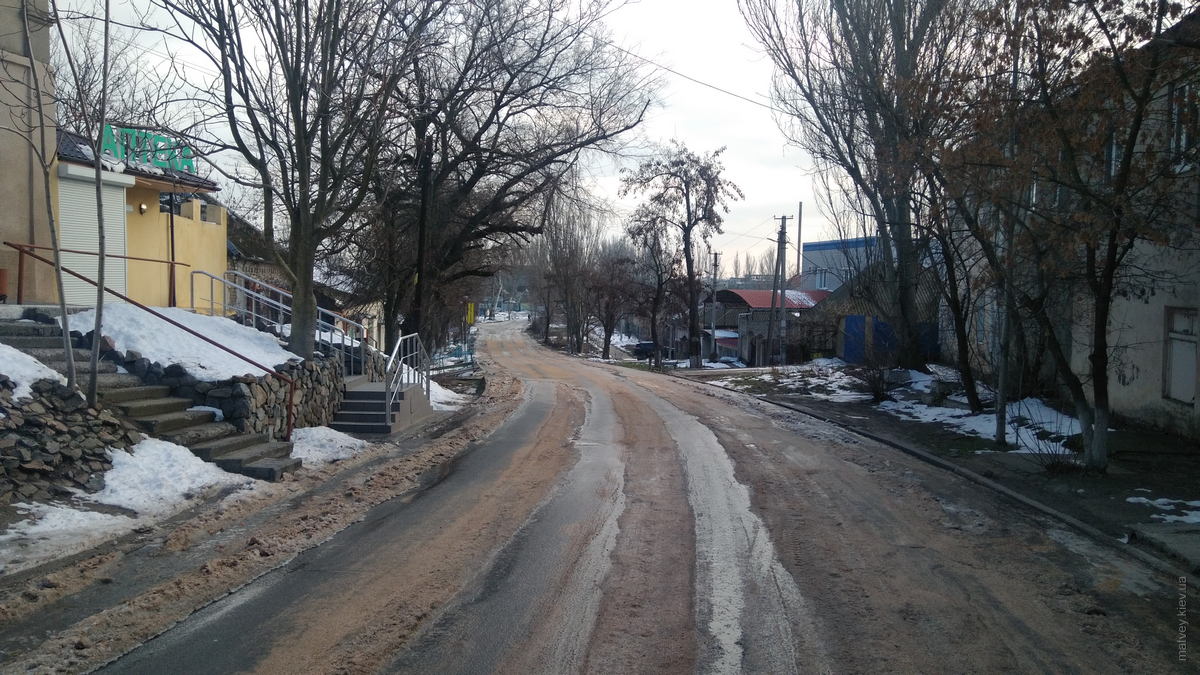
The stairways were also powdered with seashells for pedestrian safety.
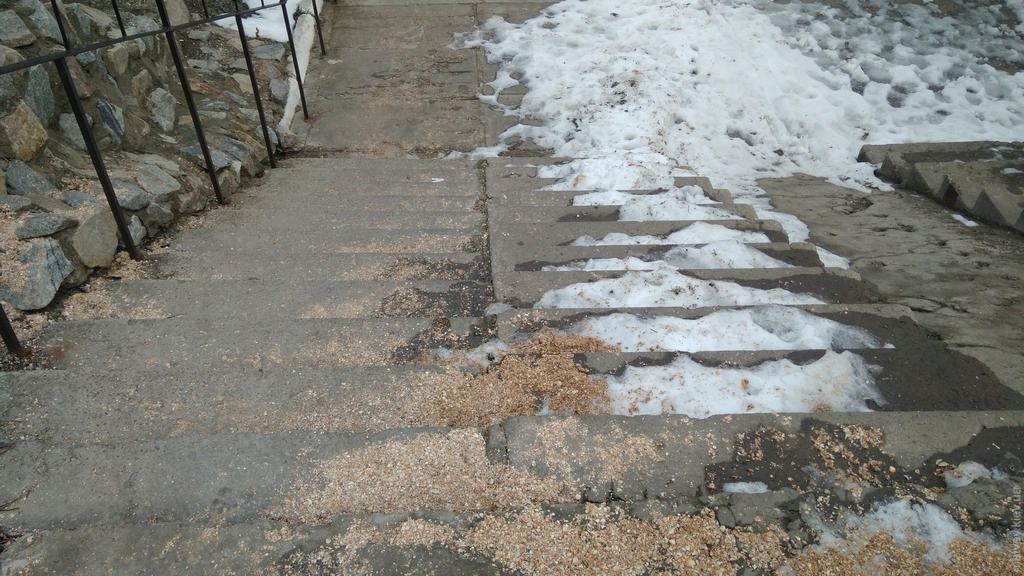
The municipal beach had a powerful concrete parapet as protection from the waves, wide enough for people to use its surface for sunbathing in summer. This was a shallow beach, and therefore it was called «the kids' beach», a common practice.
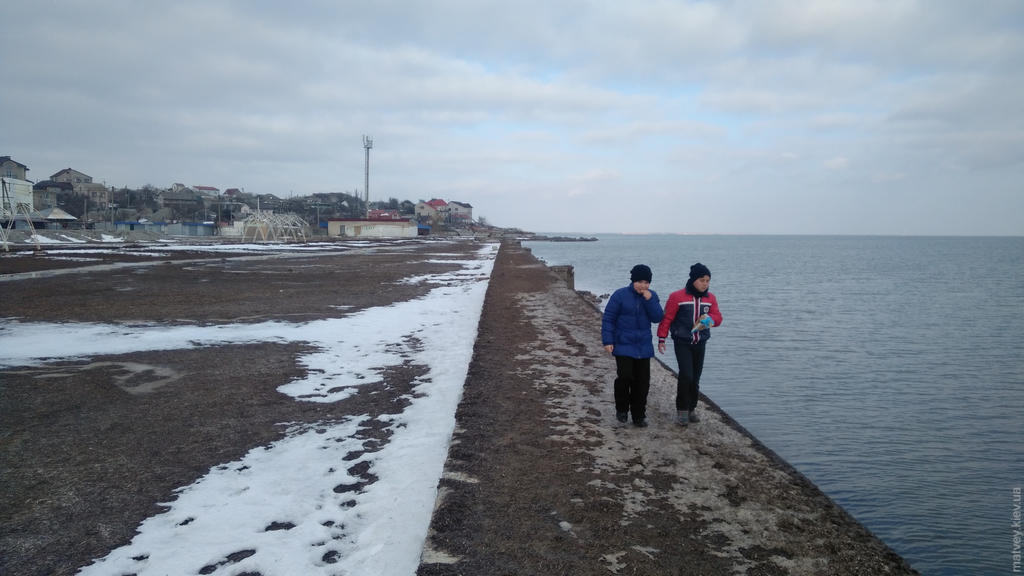
The parapet was not a panacea against all storms — the waves here do get big. There was a lot of proof of big waves here: a strip of marine vegetation 20 meters behind the protective wall. Also, the locals told us that the sand on this beach needs to be renewed every year because a lot of it gets eaten by the sea.
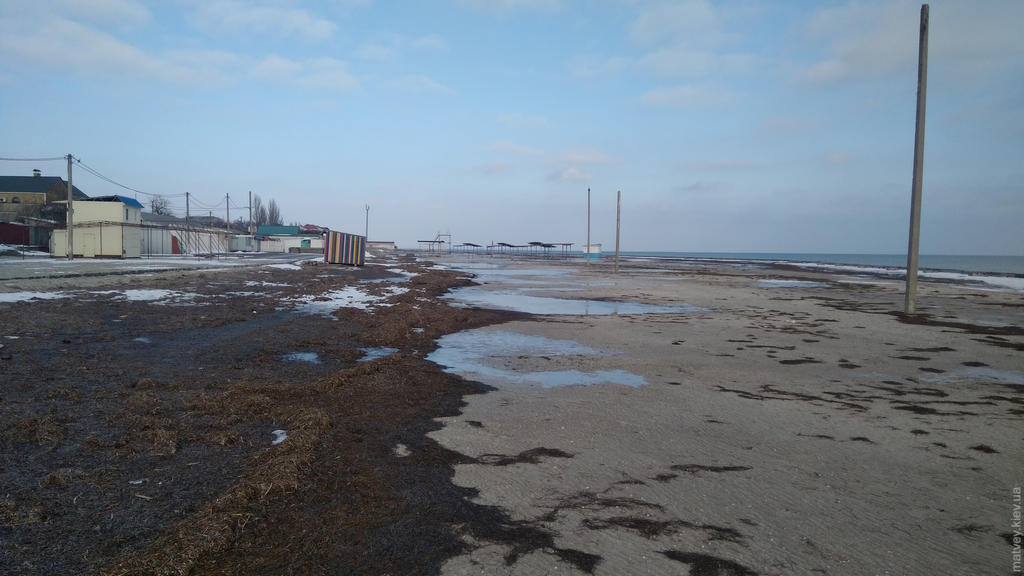
The Azov sea was in partial anabiosis for the winter.
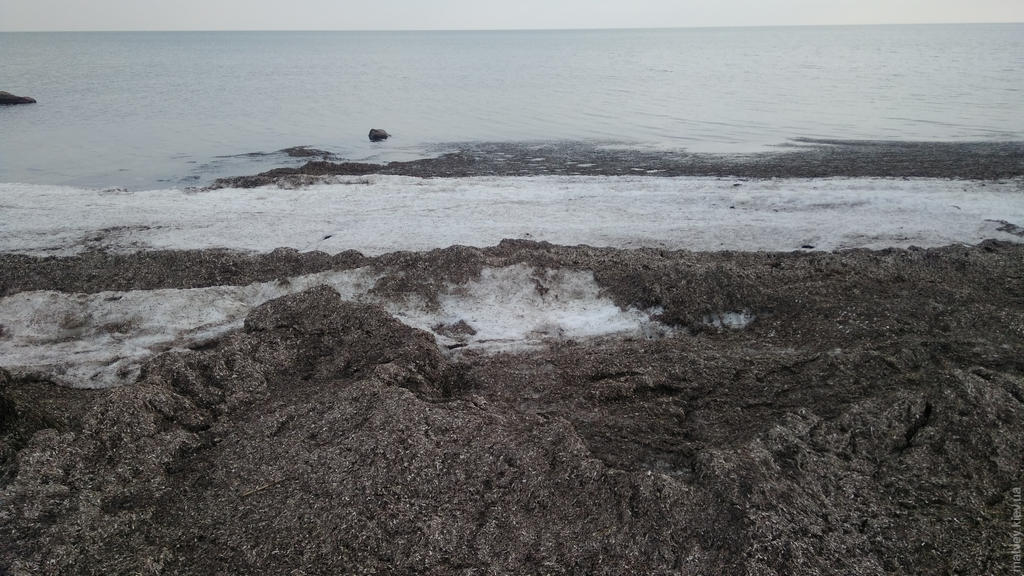
Do not litter.
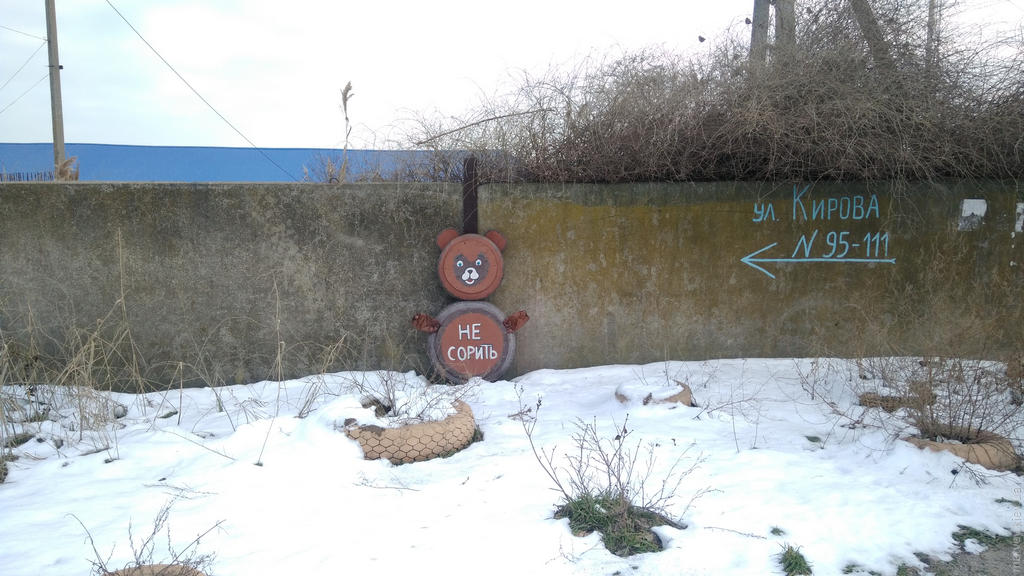
All the seaside houses are for rent during the warm season. Possibly, all the houses in the town are for rent, too, excluding the administrative ones.
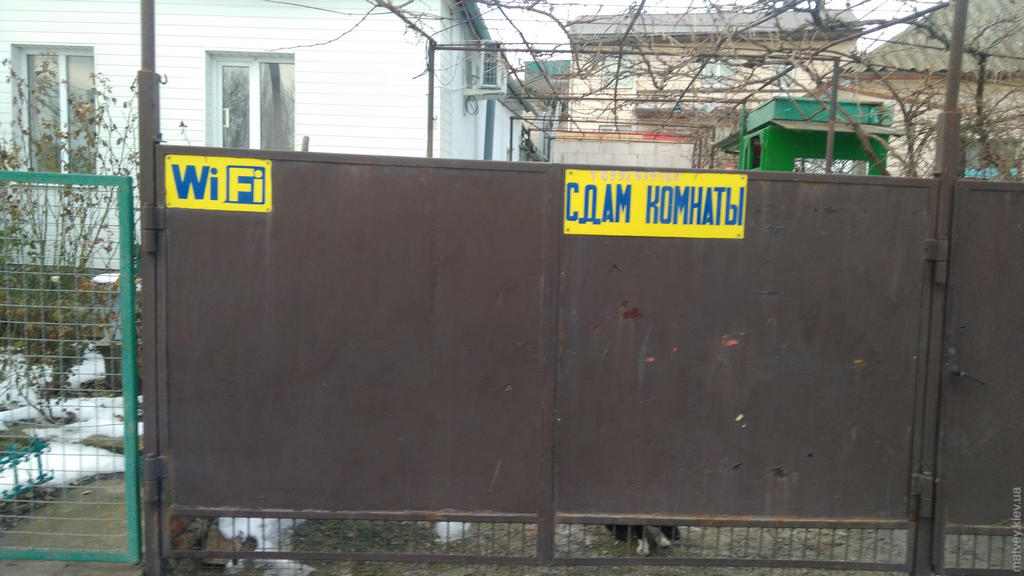
A standard sign with directions to various cities of the world on the Myru avenue in Henichesk. «Сюда» means «this way» in russian.
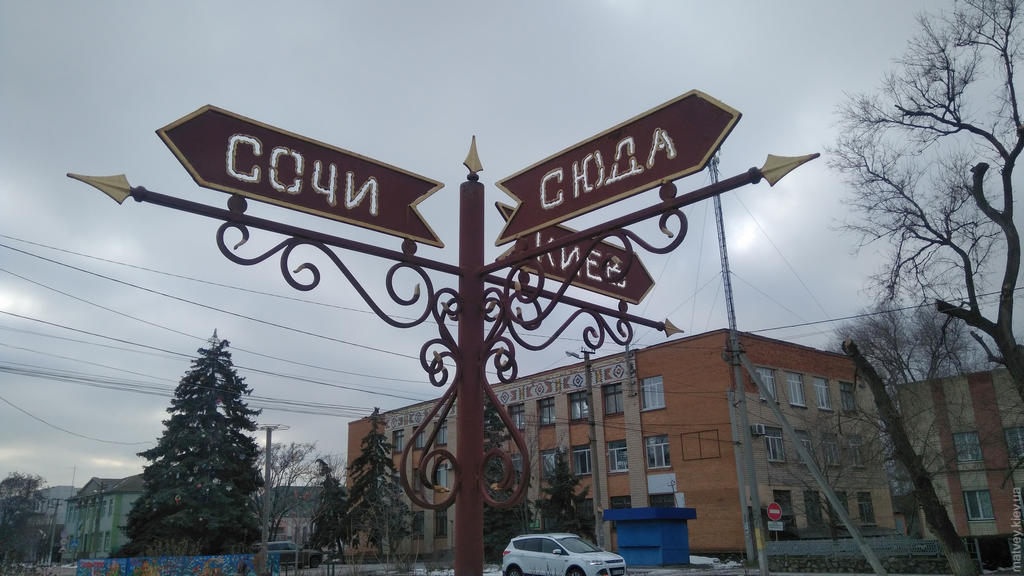
A playground in the middle of the road was waiting for the spring to come.
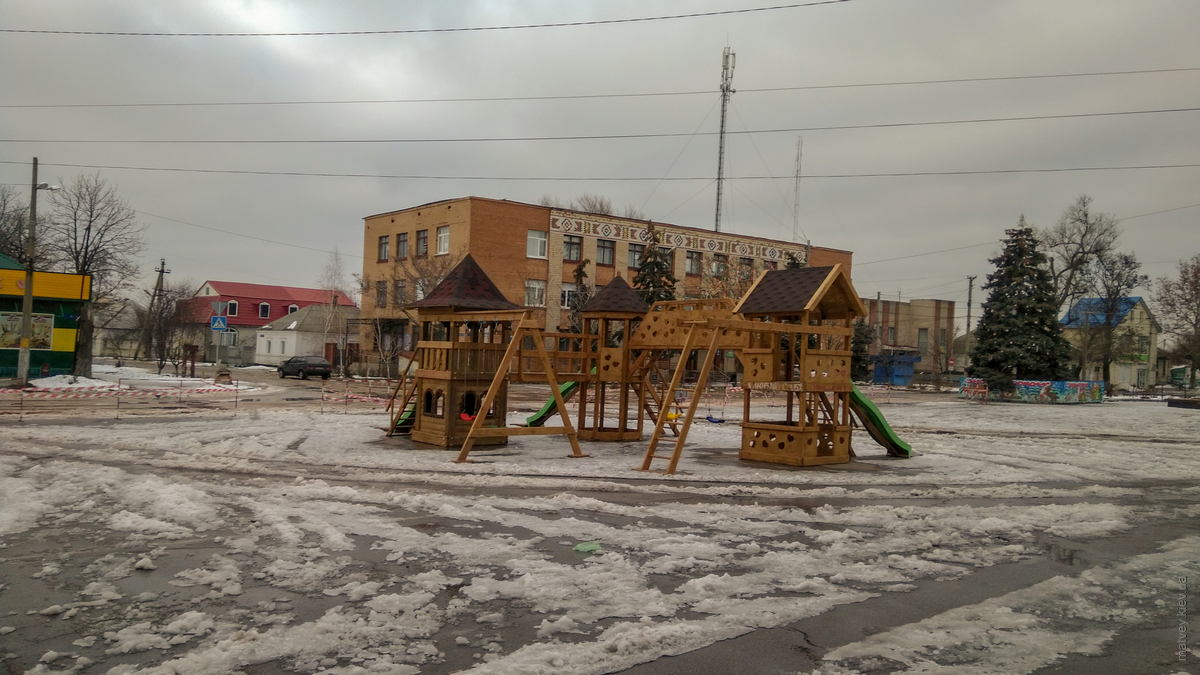
An sign of an interior designer on someone's balcony, complete with drying pants.
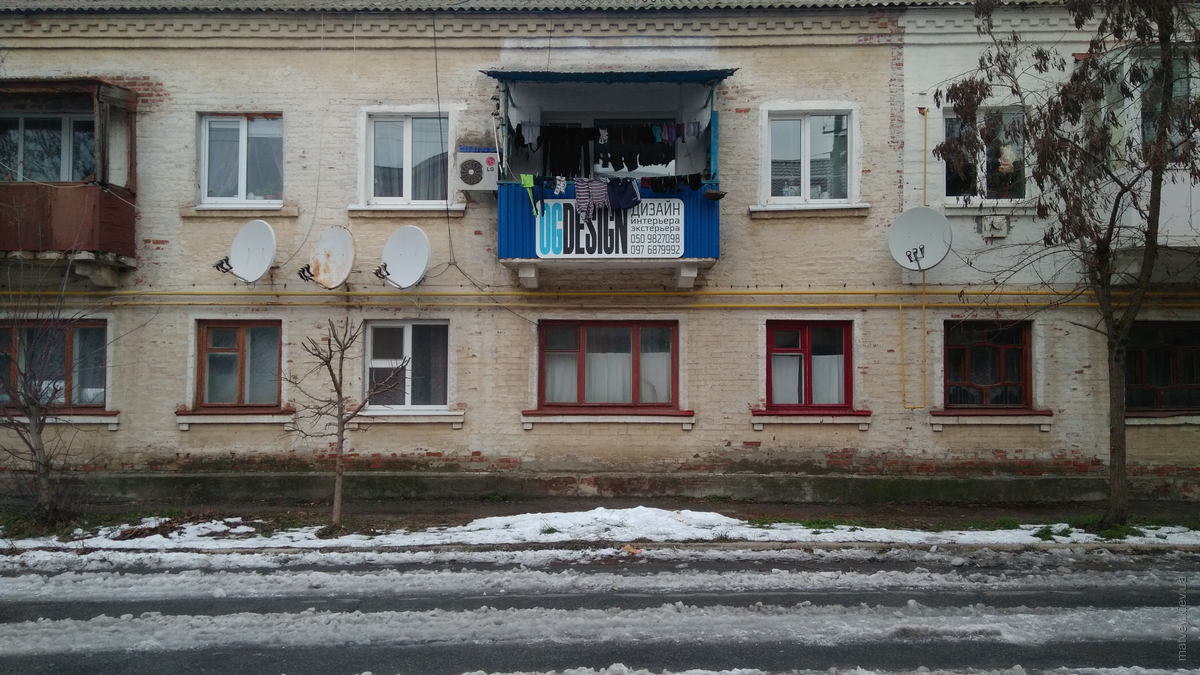
The gates of something abandoned.
